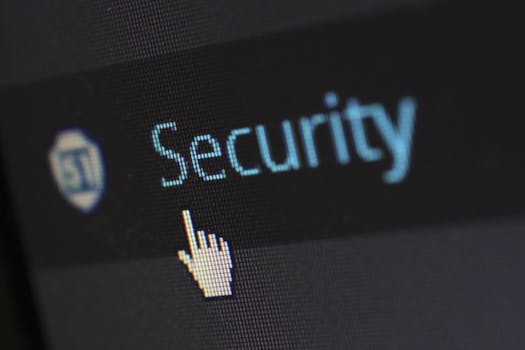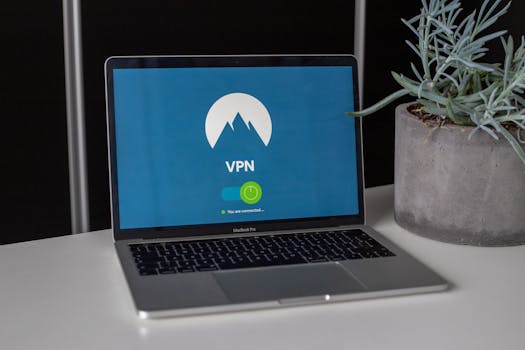The VPN Revolution: Essential Privacy Tools for a Safer 2025
In an age where our digital footprints are increasingly vulnerable, Virtual Private Networks (VPNs) have emerged as essential tools for enhancing online privacy and security. As we approach 2025, understanding the significance of VPNs is crucial for those who value their privacy online. This article explores the VPN revolution, its importance, features, and how it can safeguard your digital life.

Relevant visual content related to Cyber Security
Understanding VPNs
A VPN is a service that creates a secure connection over the internet, enabling users to send and receive data as if they were directly connected to a private network. This technology encrypts your internet traffic, disguising your online activities and masking your IP address, making it challenging for third parties to track your movements.

Relevant visual content related to VPN Explained
The Need for VPNs in 2025
With rising concerns over data privacy, cyber threats, and government surveillance, the need for VPNs has never been more pronounced. Factors driving this demand include:
- Increased Cyber Threats: Cyberattacks are on the rise, from ransomware to phishing scams. VPNs provide an additional layer of defense against such threats.
- Privacy Regulations: Laws like GDPR and CCPA are pushing organizations to ensure user data protection. Individuals are seeking tools to protect themselves actively.
- Remote Work: The surge in remote work has made VPNs essential for securing sensitive corporate data.

Relevant visual content related to Cyber Threats
Benefits of Using a VPN
VPNs offer numerous advantages, making them indispensable for secure online activity:
- Enhanced Privacy: By masking your IP address, VPNs make it difficult for advertisers and malicious entities to track your online behavior.
- Access to Restricted Content: A VPN allows users to bypass geo-restrictions on streaming services, enabling access to a broader range of content.
- Public Wi-Fi Security: VPNs protect users from data interception while connected to unsecured public Wi-Fi networks, safeguarding sensitive information.
- Improved Online Gaming Experience: Gamers can minimize lag and get access to region-restricted games by using a reliable VPN.

Relevant visual content related to VPN Benefits
Choosing the Right VPN
With numerous VPN services available, choosing the right one can be overwhelming. Consider the following factors:
- Privacy Policy: Ensure the VPN has a strict no-logs policy to protect your data.
- Speed and Performance: Look for VPNs that offer fast connection speeds, especially for streaming and gaming.
- Server Locations: A wide range of servers in various countries enhances accessibility to global content.
- Compatibility: Ensure the VPN supports your devices and operating systems.
- Customer Support: Reliable support is essential for troubleshooting and assistance.

Relevant visual content related to Choosing VPN
Future of VPN Technology
As we look towards 2025 and beyond, the landscape of VPNs is expected to evolve significantly:
- Increased Integration with AI: AI-driven features will enhance security protocols and user experiences.
- Decentralized Networks: Emerging technologies might lead to decentralized VPN solutions, enhancing privacy further.
- Greater Focus on User Experience: Future VPNs will prioritize user-friendly interfaces, making setup and usage even simpler.

Relevant visual content related to Future VPN
Conclusion
The VPN revolution is more than just a trend; it’s a necessary step towards securing our online lives. As we transition into 2025, VPNs will play a pivotal role in protecting our data, bypassing censorship, and ensuring privacy in an increasingly interconnected world. Investing in a reliable VPN service is not just wise; it’s imperative for safeguarding your digital life.
FAQs
1. What is a VPN and how does it work?
A VPN (Virtual Private Network) creates a secure connection between your device and the internet by encrypting your data and masking your IP address, improving your online privacy.
2. Can I use a VPN on my smartphone?
Yes, most VPN services offer apps for smartphones, allowing you to secure your mobile data just as you would on a computer.
3. Is using a VPN legal?
Yes, using a VPN is legal in most countries. However, specific uses of a VPN may be restricted based on local laws.
4. Will a VPN slow down my internet connection?
While some slowdown may occur due to encryption, a high-quality VPN should minimize this impact and provide fast speeds suitable for most online activities.
5. How do I choose the best VPN for my needs?
Consider factors like privacy policies, speed, server locations, device compatibility, and customer support when choosing a VPN service.